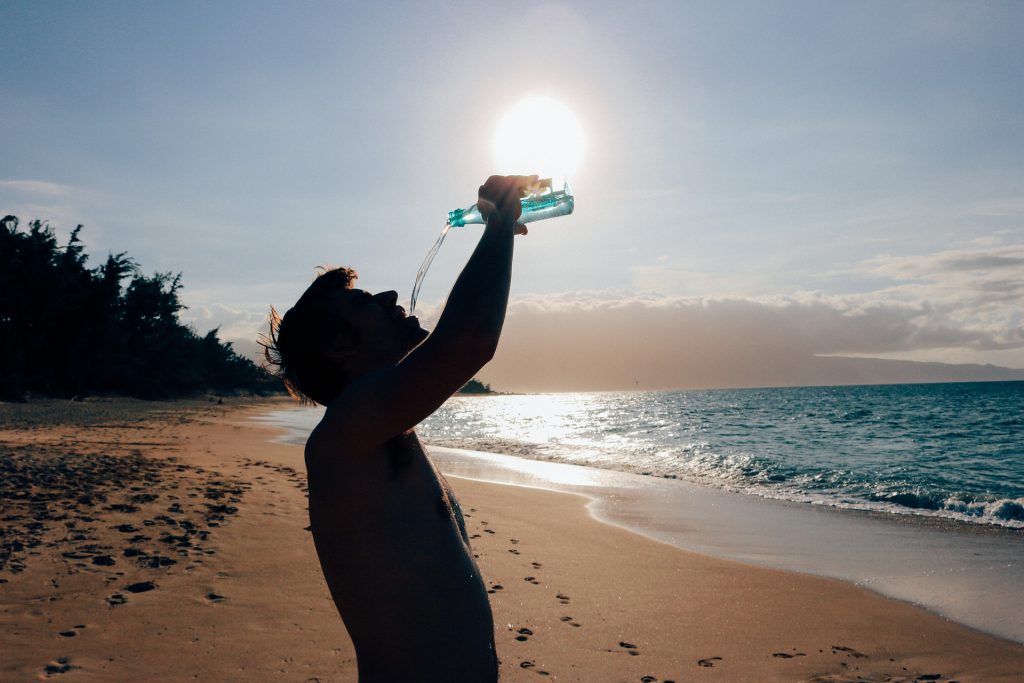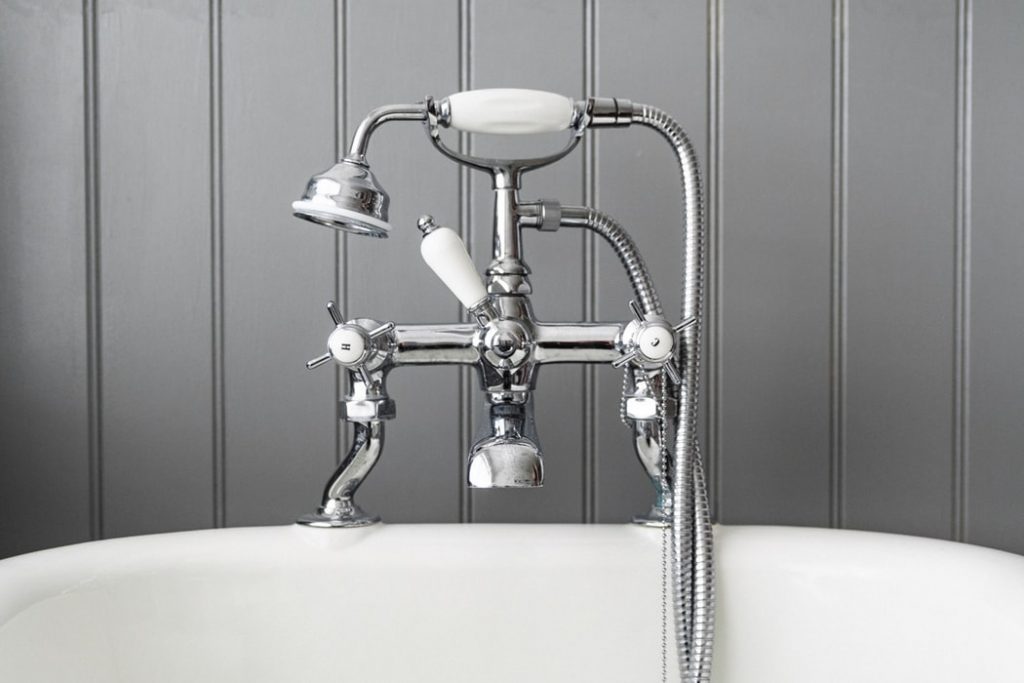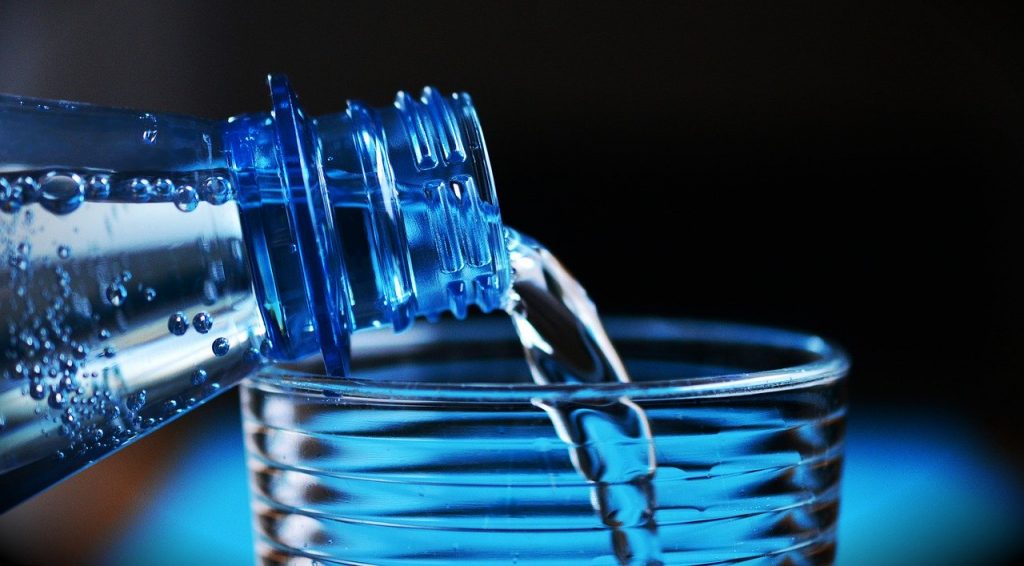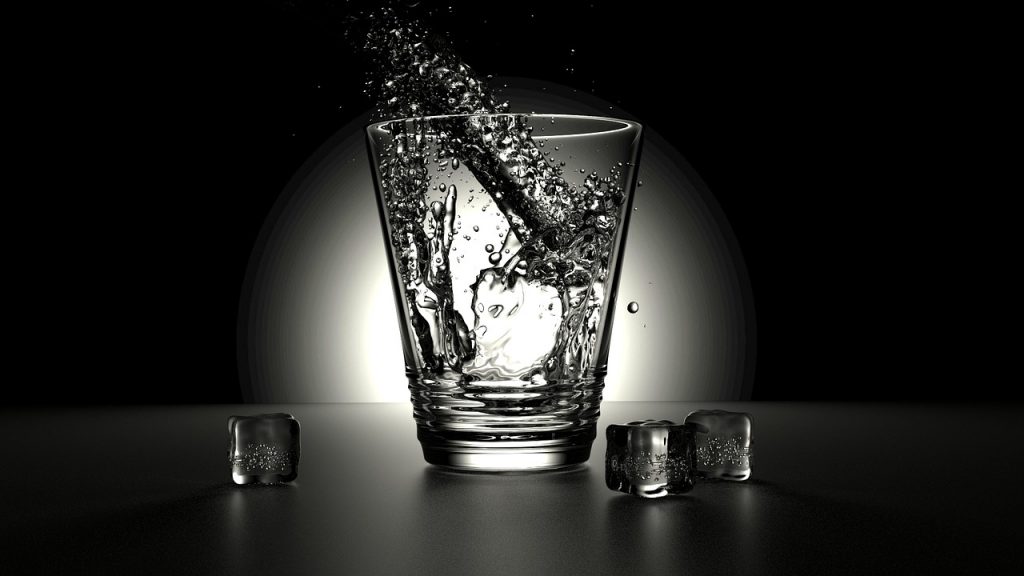The question of ‘water filter vs. bottled water’ is one we hear quite often at American Home Water and Air. While cost is among the chief concerns people raise related to this topic, it also has major implications for your family’s health.
In this post, we’ll explore the economics and health impacts of relying on either bottled water or filtered tap water for your family’s drinking supply.
Water Filter vs. Bottled Water: Economics
Cost of Bottled Water vs. Tap Water
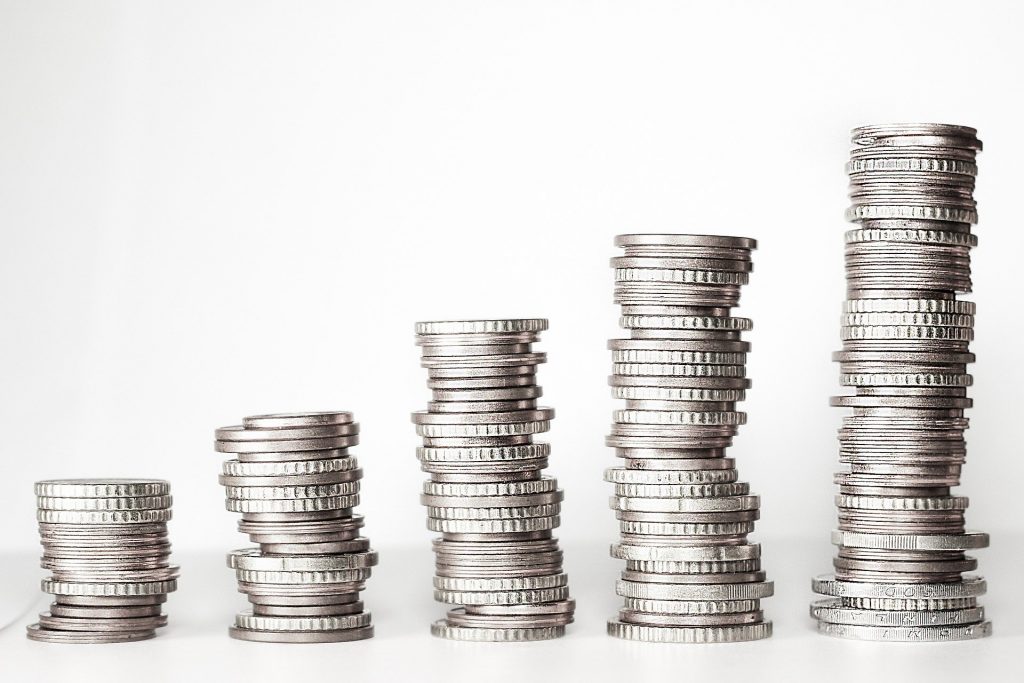
Americans spend $16 billion per year on bottled water. Without exploring the purity of bottled water just yet, let’s explore whether it makes economic sense.
According to Business Insider, American consumers spend an average of $1.22 per gallon of bottled water. That’s 300x more than a gallon of tap water costs you.
It gets worse, though. Those initial figures from Business Insider only apply if you’re buying bottled water in bulk. The bottled water vs. tap water cost discrepancy becomes even more egregious when you consider that nearly two-thirds of water bottle sales in America are for single units, which come at a cost of $7.50 per gallon. That’s nearly 2000x more than a gallon of tap water costs you.
Of course, this assumes you’re just drinking the water straight from the tap. Whole house filtration systems come at a cost, so let’s explore those economics next.
Filtered vs. Bottled Water: Cost Comparison
Filtration systems like those relying on reverse osmosis (learn about what that is and why it’s so popular here) carry an upfront cost. Since our reverse osmosis systems in Phoenix start at $350, we’ll reference that. However, the cost may differ when sizing for water heaters and other filtration systems.
Reverse osmosis systems in general also consume about two gallons of water for every one gallon they produce. One article in AZ Central quoted a cost of $0.007 per gallon of tap water as being at the upper end of what Phoenix metropolitan-area residents deal with. So, with a reverse osmosis system, that works out to an additional cost of $0.014 per gallon you drink on a regular basis. In other words, even assuming the worst at every turn, it’s quite a negligible cost.
Now that we have an understanding of costs for bottled water, unfiltered tap water, and filtered tap water, let’s tie it all together.
Cost of Bottled Water vs. Tap & Filtered Water: Tying It All Together
Americans drink an average of 58 gallons of water annually according to The Atlantic.
If you buy bottled water in bulk, that will cost you roughly $70.76 per person in your household annually. If you buy single bottles (as most Americans do), you are looking at a cost of $435 per person annually.
Unfiltered tap water would cost you (according to worst-case scenario figures in Arizona) a whopping 40 cents per person, per year.
Tap water filtered through reverse osmosis, meanwhile, would cost you $1.21 per person, per year, assuming the system you buy uses two gallons of water for every one gallon it produces.
Of course, with reverse osmosis systems, you have the upfront installation costs — but those are one-time fees that vanish by the second year. In other words, reverse osmosis very quickly becomes the most economically viable way to ensure pure drinking water for your family.
Now that we’ve explored the bottled water vs. tap water cost question at length, let’s explore which is healthier for you: bottled water or filtered water.
Filtered vs. Bottled Water: Health Impacts
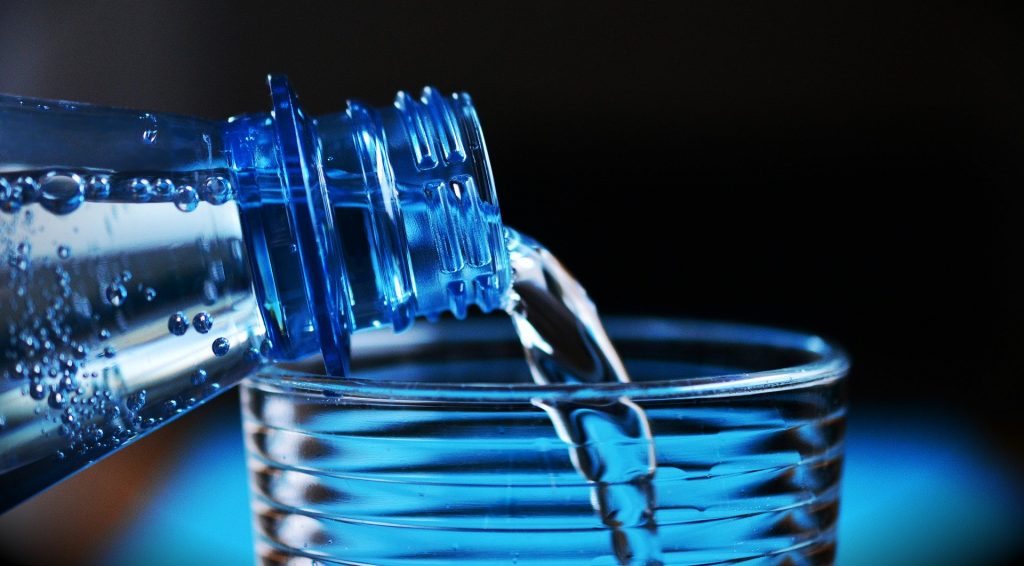
For decades, research has shown that bottled water isn’t as healthy as many people assume it to be. Part of the issue lies in the fact that bottled water is actually less regulated than tap water. That’s quite alarming since it’s no secret that tap water in the United States has serious contamination issues.
In many cases, there’s actually no difference between well water vs. bottled water other than the fact that you are trusting manufacturers to employ good testing on the tap water before bottling it.
In other words, you’re basically outsourcing the work of filtering your city’s tap water. Bottled water companies are happy to charge you a rate many orders of magnitude beyond what you’d pay for filtering your tap water yourself, with no discernible health benefits.
Bottled Water vs. Water Filter: Plastic Is Dangerous, Too
The plastic used to produce bottled water can harm your health, negating any benefits purification you were counting on.
One study showed that these plastics are especially susceptible to leaking chemicals when you store the bottles in areas of elevated temperature. That includes hot cars, backpacks, or even your home if you live in a place like Phoenix that experiences sweltering summers.
One of the most heavily-studied of these chemicals in plastic bottles is BPA. Here’s a rundown of its potential health effects.
Hormone Disruption
BPA mimics the hormone estrogen. This can have impacts on your developing children (such as delaying puberty), decrease your fertility, weaken your immune system, and increase your weight.
Behavioral Issues
Children and infants are especially susceptible to behavioral issues that can come about due to BPA’s impact on the brain.
Possible Increased Cancer Risk
Animal studies have shown that BPA exposure can increase the risk of cancer in animals.
Potential Heart Issues
In clinical studies, patients with elevated levels of BPA in their bodies were observed to have the highest rates of cardiovascular issues. Researchers aren’t certain whether this is directly related to BPA, however, or whether patients with elevated BPA levels are simply more likely to have other risk factors as well.
Keep in mind that BPA is just one of the chemicals in plastic bottles. Researchers are constantly testing others and their results may prove even further that plastic water bottles are detrimental to human health.
Bottled Water vs. Water Filter: Environmental Impacts
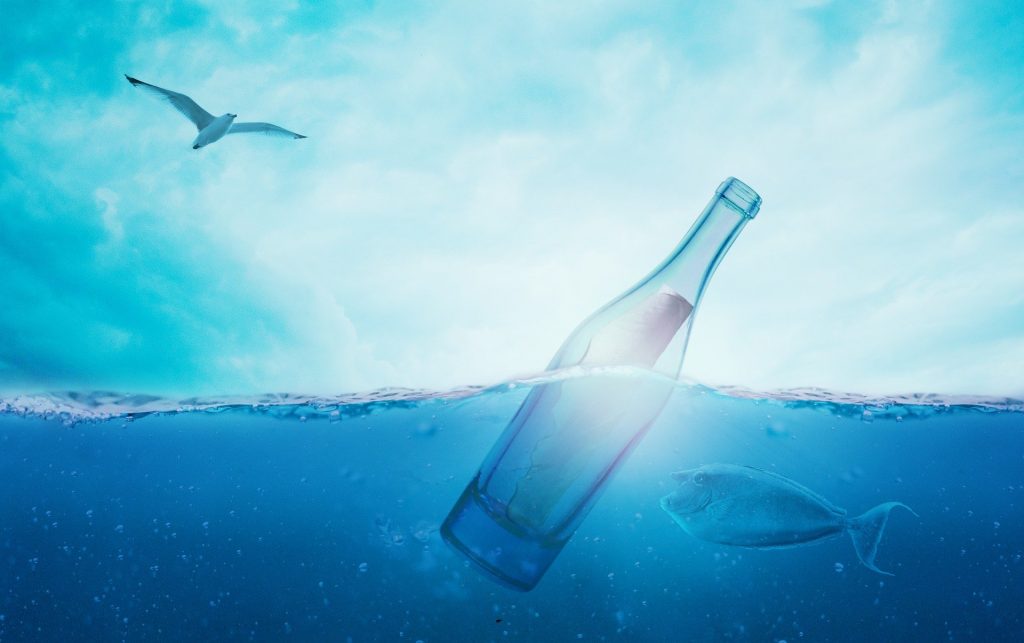
Reverse osmosis systems do not use electricity. They rely on your home’s water pressure to force your tap water supply through a series of fine membranes.
These systems also produce very little by way of waste. Depending on the system, you may need to change the filter a couple of times per year, disposing of the old ones.
Still, this doesn’t even come close to the amount of waste that gets generated by water bottles.
Globally, only one out of every five plastic bottles gets recycled. The rest end up in landfills or the ocean. In the United States alone, manufacturers use more than 1.5 million barrels of oil to produce plastic bottles.
The environmental impact of bottled water tends to be the point people mention the least when it comes to reasons for avoiding bottled water. This is largely because it doesn’t directly impact most consumers as the other points do. You won’t notice it like you notice a direct impact on your bottom line or health. Still, caring for the environment is important as contamination leads to many of the water issues we have in cities like Phoenix, to begin with. Despite the ongoing water crisis, Peoria’s water supply management has maintained its water quality to the state and federal drinking standard. As such, here are 4 things that you can do in Peoria to make your stay worthwhile in Arizona.
Well Water vs. Bottled Water: Conclusion
In conclusion, bottled water makes absolutely no sense from an economic standpoint. Consumers spend as much as 3,000x more on bottled water than they’d expend by simply drinking from the faucet.
Even when you calculate the cost of filtering your water at home using reverse osmosis, bottled water exponentially exceeds it. Combine that with health and environmental risks and it’s unclear why anyone who takes the time to learn (as you have, by virtue of making it this far in the article) would buy bottled water.
Contact us at American Home Water and Air to learn how easy (and affordable) it is to have a reverse osmosis filter installed in your home today.
Frequently Asked Questions
Is bottled water better for you than tap water?
If you live in an area with contaminated water, bottled water may be better for you than untreated water straight from your tap. However, it would be much more economically viable of you to have a reverse osmosis filter installed in your home.
Further, plastic bottles contain chemicals that can leech into your water if you store them at certain temperatures. These chemicals can impact your health severely.
What is the difference between bottled water and tap water?
Some experts have referred to bottled water as simply “glorified tap water.” In many cases, bottled water manufacturers simply treat water from the municipal supply and then bottle it. You can perform this treatment yourself at a much lower cost with an in-home filtration system.
If you want to learn more about the different types of water you can consume, you can also check out our article on how to make distilled water.
[related_posts_by_tax posts_per_page="3" format="thumbnails" image_size="medium"]


